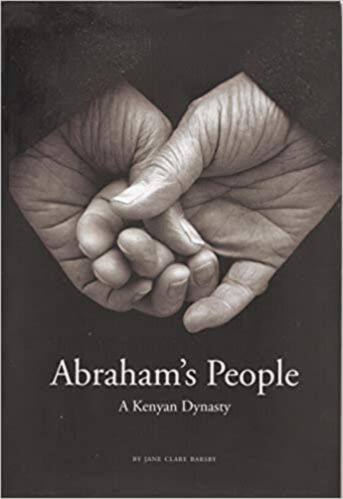Local Storage seems to be disabled in your browser.
For the best experience on our site, be sure to turn on Local Storage in your browser.
The book, all 400 pages of it, sticks largely to the script of facts but unlike many other biographies brings Abraham’s journey alive, saturated with anecdotes, narrating the many twists in the tail of Abraham’s life as if the author had been the proverbial fly on the wall at times. Jane manages to find that perfect blend of what story telling should embrace, an embroidery of facts and at times a bit of fiction surely, giving readers of the book ‘Abraham’s People’ the impression of reading a novel rather than a dry story dictated entirely by time lines and actual events. Abraham’s escape route took him to Britain first, still as a young lad, before taking a leap into the unknown when he decided to first go to South Africa in 1901 to join up with his father, working his passage as a ‘grease monkey’ in the engine room before finally making his way to Kenya in 1903 at the age of 20. The first chapters in the book are dedicated to the story of his forefathers, how they came to Lithuania where they first prospered and then suffered under increasingly intolerant rulers, leading up to the days when first his father had to flee for his dear life before, almost one by one, the rest of the family managed to make their getaway. It must have been in those days in Leeds, when a little acorn took root in Abraham’s mind, germinating along the way, taking shape and eventually becoming a vision taking visible shape. His arrival at the port of Mombasa and the rail journey on the ‘Lunatic Express, aka as The Iron Snake’, his stepping off the train in Nairobi, back then but a depot for the railway, around which a town had just started to grow, his first meetings with contemporaries who were part of Kenya’s colonial history, all is meticulously captured by the author. Again it almost appears that Jane Barsby was present or else managed to train her looking glass back in time as she describes how Abraham met with Tommy Woods on arrival in Nairobi, who became a fast friend, or how Abraham made a quick 25 pounds profit on a land deal, which he struck with one of the Asian community’s icons Mr. Jevanjee and how he then ventured into business, farming, ranching and deal making, soon becoming part of the colonial Kenya’s ‘furniture’ too. The author ably sums up Abraham’s business acumen when she describes him as basically a jack of all trades with an uncanny ability to smell money if it could be made somewhere by buying or selling, investing or trading, importing and exporting. As the chapters add up, more and more insight is given into the life Abraham lived, the setbacks he suffered and his almost throwing in the towel had it not been for Lord Delamare, the Kenyan colony’s leading aristocrat and an icon in his own right. Abraham was down though not yet quite out when Delamare persuaded him to stay on instead of returning to South Africa, loaned him ploughing oxens and dairy cows to give him a kickstart, a confidence Abraham repaid when he turned a profit again and was able to pay back his loans. Those were the days dynasties were built in Kenya, by individuals with an equal mindset to succeed and do whatever it took, and the similarities, after reading this book, are surely striking. Told here is the story of a man, and his family, who is living his dream, turning his vision of a business empire into reality. It is a story of a struggle, often against the odds, often having to overcome prejudice, including from people like Lord Delamare, the story of a journey, of being constantly alert for potential trouble coming his way from all quarters and from any direction while at the same time relentlessly marching on to build, create and build some more with a tenacity few others had and maintained in the face of the many obstacles in his way. The book provides both an extensive as well as an essential history lesson of those long gone days how life was in the Kenyan Crown Colony, not to forget the two world wars which drew the Kenyan colony into them and in one of which Abraham fought in Tanganyika, nearly losing his life to black fever. By then Abraham had married his wife Sarah, a sister of his friend David Tulipman, and the couple had four children, Rita in 1914, Jack, aka Jacob in 1916, Eddie Ruben aka Tubby in 1919 and finally, as a late comer, Ruth in 1927. Other contemporary figures who lived alongside him, made their own fame, documented in books and even films, and some surely were more flamboyant than Abraham. While passing mention is made of the Happy Valley days of pre-independent Kenya, the narrative of Abraham’s story certainly gives a better impression of not the glitz and glamour – though he too enjoyed some of that of course – but of the struggle of one man, his constant toil, his sacrifices, the opposition he faced, the low key persecution for being Jewish and in the end his triumph over all that adversity. Abraham left a legacy behind, and an extended family who can be proud of the roots their father turned patriarch in his later years grew, a family as Kenyan as they come but for the life Abraham lived, never giving up, ever persisting and always – in the end at least – succeeding. The book tells the story of a man who clearly went through life with a passion, compassion and who, as an archetypal patriarch, ‘ruled’ over his family with great authority and at times iron discipline.
| Author | Jane Barsby |
|---|












Sign In
Create New Account